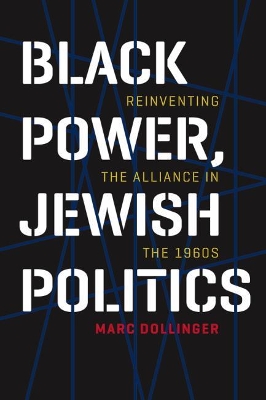In this provocative critique, Marc Dollinger charts the transformation of American Jewish political culture from the Cold War liberal consensus of the early postwar years to the rise and influence of Black Power–inspired ethnic nationalism. He shows how, in a period best known for the rise of black anti-Semitism and the breakdown of the black-Jewish alliance, black nationalists enabled Jewish activists to devise a new Judeo-centered political agenda and express it in more visible forms of Jewish identity—including the emancipation of Soviet Jews, the development of a new form of American Zionism, the opening of hundreds of Jewish day schools, and the creation of revitalized worship services with gender-inclusive liturgy.
This study of postwar American Jewish life challenges much of the historiography describing the motivations for and limits on Jewish involvement in various social protest movements, as well as the accepted wisdom on the origins and nature of the Jewish turn inward; in the process, it undermines commonly held beliefs about the nature of the black-Jewish alliance and the course of American Jewish liberalism since the mid-1960s. Dollinger argues that a new political consensus emerged at a moment of great intergroup conflict, drawing blacks and Jews together under the identity-politics banner even as their alliance in the civil rights movement—inspired by Dr. Martin Luther King—became fractured.
Hardcover is un-jacketed.
- ISBN10 1512602566
- ISBN13 9781512602562
- Publish Date 17 July 2018 (first published 5 June 2018)
- Publish Status Transferred
- Out of Print 13 April 2021
- Publish Country US
- Imprint Brandeis University Press
- Format Hardcover
- Pages 272
- Language English
